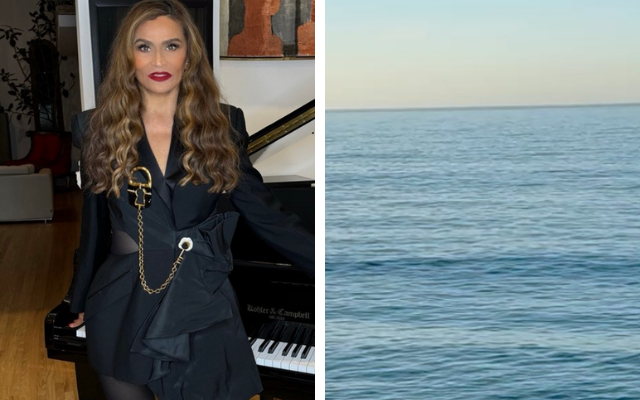“It will be decades before you ever see someone in my genre as proficient as me. I am a maybe once-in-a-lifetime talent. I am telling you the truth.”
So said Dave Chappelle, not alone to a mirror to psych himself up, but on stage, before an audience, with cameras recording him. Footage from this event, which took place last month at his alma mater, the Duke Ellington School of the Arts, a Washington, D.C. magnet high school for performers, theater technicians, and visual artists has been released as Dave Chappelle: What’s in a Name? the latest Chappelle special streaming on Netflix.
The new work appeared late Thursday/early Friday, and listed as a “speech,” not a comedy special, as a surprise Netflix drop. Unlike previous unexpected releases (has it really been just two years since the debut of 8:46?) this one appeared on the service with very little fanfare. This is, surely, due to the backlash against his previous release, The Closer, which led to walkouts among Netflix staff who accused the comic of transphobia and denounced the company for continuing to provide him a platform. It also led to a significant push-and-pull related to this very special. I mean, speech.
As we reported in late June, it was at the ceremony when What’s in a Name? was taped that Chappelle turned down the honor of having a new performance venue named after him at his old school. After delays and some public head-scratching, all parties have agreed to dub the auditorium the Theatre for Artistic Freedom & Expression. Chappelle had pledged $100,000 toward its construction and previously called its initial name “the most significant honor of my life.”
This decision came after a previous homecoming encounter in November 2021, when Chappelle was met with criticism by many students. Never one to shy away from an argument, the comic tussled a bit with his hecklers. To some of the angry teens he said “I’m better than every instrumentalist, artist, no matter what art you do in this school, right now, I’m better than all of you. I’m sure that will change. I’m sure you’ll be household names soon.”
What’s in a Name? runs 40 minutes, and includes stories from the 48-year-old’s days at the D.C. school, then pivots to Chappelle patting himself on the back for how many views The Closer has, and finally shaking his fist against cancel culture. But this time his ire is directed not just against the media, but (as so many comedians have exclaimed over the years) these kids today!
“These kids said everything about gender and this, that, and the other, but they didn’t say anything about art,” he sighed, referring to the previous encounter at Duke Ellington. Citing a worry about the flattening of nuance, he referred to the backlash about his trans jokes as similar to “reading a newspaper and it said, ‘Man shot in the face by a six-foot rabbit, expected to survive,’ and you say ‘Oh my God!’ but they never tell you it’s a Bugs Bunny cartoon.”
He also suggested that the teens surely did not come up with their anti-Chappelle opinions on their own, that “those talking points coming out of those children’s faces” which “really hurt” the comic, were parroted from elsewhere. (“I’ve heard those words before!” he said, with a bug-eyed grin.)
He then added that “these kids didn’t understand that they were instruments of oppression.”
He also compared the recent vandalism against the Mona Lisa at the Louvre Museum as similar to how people have attacked his special The Closer. (He also snuck in that the attacker was “wearing women’s clothing,” which is true, but he was dressed like an elderly woman in a wheelchair to avoid security; just how much of Chappelle’s phrasing was meant to be inflammatory or “just a joke” is certainly open to debate.)
He concluded by challenging students who find his work oppressive to beat him with their own artistic expression.
In a New York Times interview in May, Netflix chief Ted Sarandos once again stood by Chappelle, saying the “kerfuffle” took him by surprise, but was committed to providing a space for comedians to “cross the line every once in a while” and that “it’s very important to the American culture generally to have free expression.”
Other distinguished alumni of the Duke Ellington School, which boasts an 86 percent minority enrollment, includes Me’Shell Ndegéocello, Denyce Graves, and the late, great Wallace Roney.





















Discussion about this post